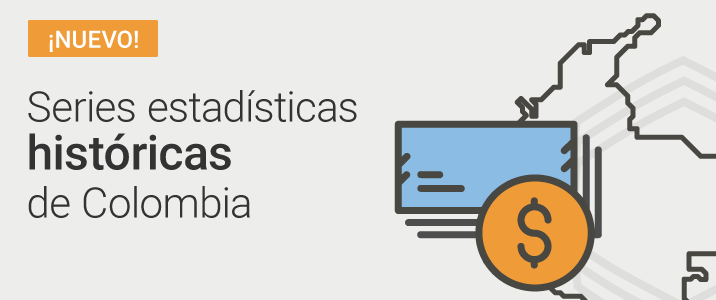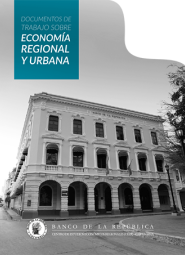Supply and Transactions Costs in Food Markets of Colombian Cities
La serie Borradores de Economía es una publicación de la Subgerencia de Estudios Económicos del Banco de la República. Los trabajos son de carácter provisional, las opiniones y posibles errores son responsabilidad exclusiva del autor y sus contenidos no comprometen al Banco de la República ni a su Junta Directiva.
The series Borradores de Economía (Working Papers on Economics) contributes to the dissemination and promotion of the work by researchers from the institution. On multiple occasions, these works have been the result of collaborative work with individuals from other national or international institutions. This series is indexed at Research Papers in Economics (RePEc)
The opinions contained in this document are the sole responsibility of the author and do not commit Banco de la República or its Board of Directors.
Abstract
In this paper, we explore the degree of market integration for a set of agricultural food products in Colombia. We estimate a measure of transaction costs across wholesale markets using a Threshold Autoregressive (TAR) model. We focus on studying the exchange of rice, onion, potato, yucca, plantain, and red beans between potential regions of production and Bogotá, Medellín, and Cali. Also, we describe the structure of the supply networks for these goods. Our results suggest that there is market integration, with an average half-life of shocks to price differentials of three weeks. A few regions in the country produce large shares of total supply in the three main cities; this market concentration is particularly strong for the least perishable products, such as potatoes and rice. Nonetheless, there are substantial transaction costs that reach, on average, 42 percent of prices in source markets.


















































